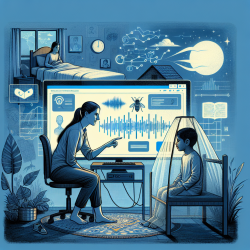Understanding the Impact of Childhood Experiences on Mental Health
As professionals dedicated to enhancing the lives of children, it is crucial to understand the profound impact that early experiences, such as childhood maltreatment and peer victimization, have on mental health. The recent study titled "Contributions of childhood peer victimization and/or maltreatment to young adult anxiety, depression, and suicidality: a cross-sectional study" provides valuable insights into these associations and offers data-driven guidance for practitioners.
The Study at a Glance
Conducted by Macalli et al., this study analyzed data from the i-Share project, involving 2,271 participants. The research aimed to differentiate the effects of childhood maltreatment and peer victimization on mental health outcomes in young adulthood, specifically focusing on anxiety, depression, and suicidality.
Key Findings
- Approximately 28.8% of participants reported experiencing at least one mental health problem.
- Peer victimization alone was linked to increased risks of anxiety (aOR: 1.90), depression (aOR: 1.95), and suicidal ideation (aOR: 1.62).
- Combined exposure to maltreatment and peer victimization significantly heightened the risk of depression and suicidal thoughts with attempts (aOR: 9.19).
Implications for Practitioners
The findings underscore the importance of addressing both maltreatment and peer victimization in therapeutic settings. Practitioners can enhance their approaches by:
- Implementing comprehensive assessments that consider both familial and peer-related adversities.
- Developing targeted interventions that address the specific needs arising from these experiences.
- Collaborating with schools and families to create supportive environments that mitigate the impact of peer victimization.
Encouraging Further Research
While this study provides significant insights, it also highlights the need for further research to explore the nuanced interactions between different types of childhood adversities and their long-term effects. Practitioners are encouraged to engage in or support research initiatives that aim to deepen our understanding of these complex dynamics.
Conclusion
By integrating the findings of this study into practice, speech-language pathologists and other child-focused professionals can make informed, data-driven decisions that enhance therapeutic outcomes. Addressing the root causes of mental health issues stemming from childhood experiences is essential in fostering resilience and well-being in young individuals.
To read the original research paper, please follow this link: Contributions of childhood peer victimization and/or maltreatment to young adult anxiety, depression, and suicidality: a cross-sectional study.










